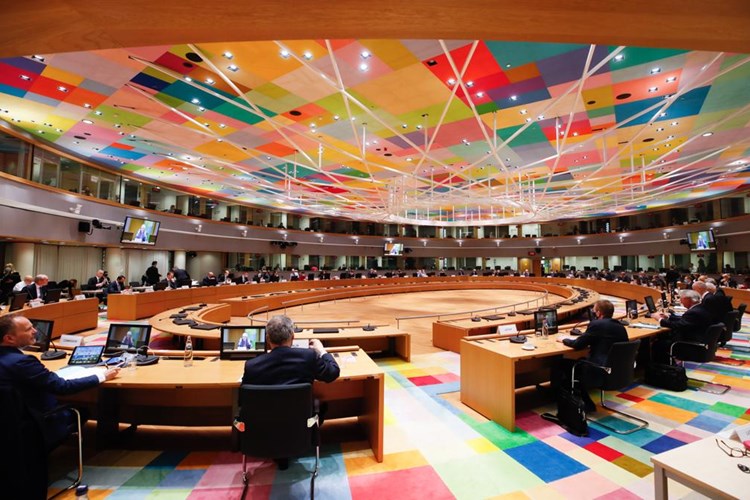- Published: 22.03.2021.
Minister Grlić Radman presents non-paper on BiH to Foreign Affairs Council
A non-paper on Bosnia and Herzegovina that was prepared at Croatia's initiative, has come across a good reception with EU foreign ministers, Croatia's Minister of Foreign and European Affairs, Gordan Grlić Radman, said on Monday
A non-paper on Bosnia and Herzegovina that was prepared at Croatia's initiative, has come across a good reception with EU foreign ministers, Croatia's Minister of Foreign and European Affairs, Gordan Grlić Radman, said on Monday.
At a meeting of EU foreign ministers on Monday, Grlić Radman presented the non-paper on BiH supported by Croatia, Slovenia, Hungary, Bulgaria, Greece and Cyprus.
"The document was well accepted and everyone commended it," said Grlić Radman after the meeting.
He added that the initiative was launched three or four months ago and the document was hammered out by the countries willing to support it. Grlić Radman said that he discussed the document with several ministers including the foreign ministers of France and Germany, who also backed it.
The document is a basis to discuss Bosnia and Herzegovina at the next EU foreign ministers council as part of the discussion on the Western Balkans.
"Croatia is the driver of this initiative with which we wish to present Bosnia and Herzegovina as an important issue for the European Union which should be more visible on the geopolitical space in Southeast Europe," said Grlić Radman.
He underscored that Croatia is the most interested and most sincere advocate of Bosnia and Herzegovina's Euro-Atlantic journey.
The non-paper underlines that BiH has to remain in the centre of the EU's attention and that that country's membership to the EU is a priority and aspiration and for that to happen its entire society needs a comprehensive transformation.
One of the first objectives on that journey is to obtain candidate status for which it needs to fulfill 14 priorities defined by the European Commission.
The non-paper notes that Bosnia and Herzegovina is founded on the principle of the equality of three constituent peoples and all its citizens regardless of which part of the country they live in.
In order to fulfill the political criteria, Bosnia and Herzegovina has to implement a ruling by the European Court for Human Rights.
“The fragmented political landscape and atmosphere of mistrust between political representatives in Bosnia and Herzegovina often cause blockades of institutions and their functioning and takes them backward in key reforms. Only by being firmly anchored for European values and standards of civil and political rights for all three constituent peoples and its citizens can the country strengthen its stability and progress. For that to happen, key reforms, including reforming the electoral law need to be adopted without any further delay prior to the 2022 election," the document notes.
The document adds that the new electoral law in BiH needs to be aligned to European standards and recommendations by the OSCE and Venetian Commission in order to avoid "any manipulation in the election process."
"We want Bosnia and Herzegovina to take a decisive and sustainable step towards political stability, a functioning market economy and prosperity for all its citizens. The stability, security, prosperity and functioning of Bosnia and Herzegovina as a single, united and sovereign state is of the utmost importance not only for its immediate neighbours, but also for the region, the EU and the whole of Europe," the non-paper says.
The document also points out that Bosnia and Herzegovina should implement economic reforms and work on an effective migration policy.
In order to successfully stop illegal migration, the country should ensure effective border control, improve return and readmission procedures, develop a registration and monitoring system, and ensure humanitarian aid for all vulnerable persons and asylum seekers.
Text: Hina/MFEA



